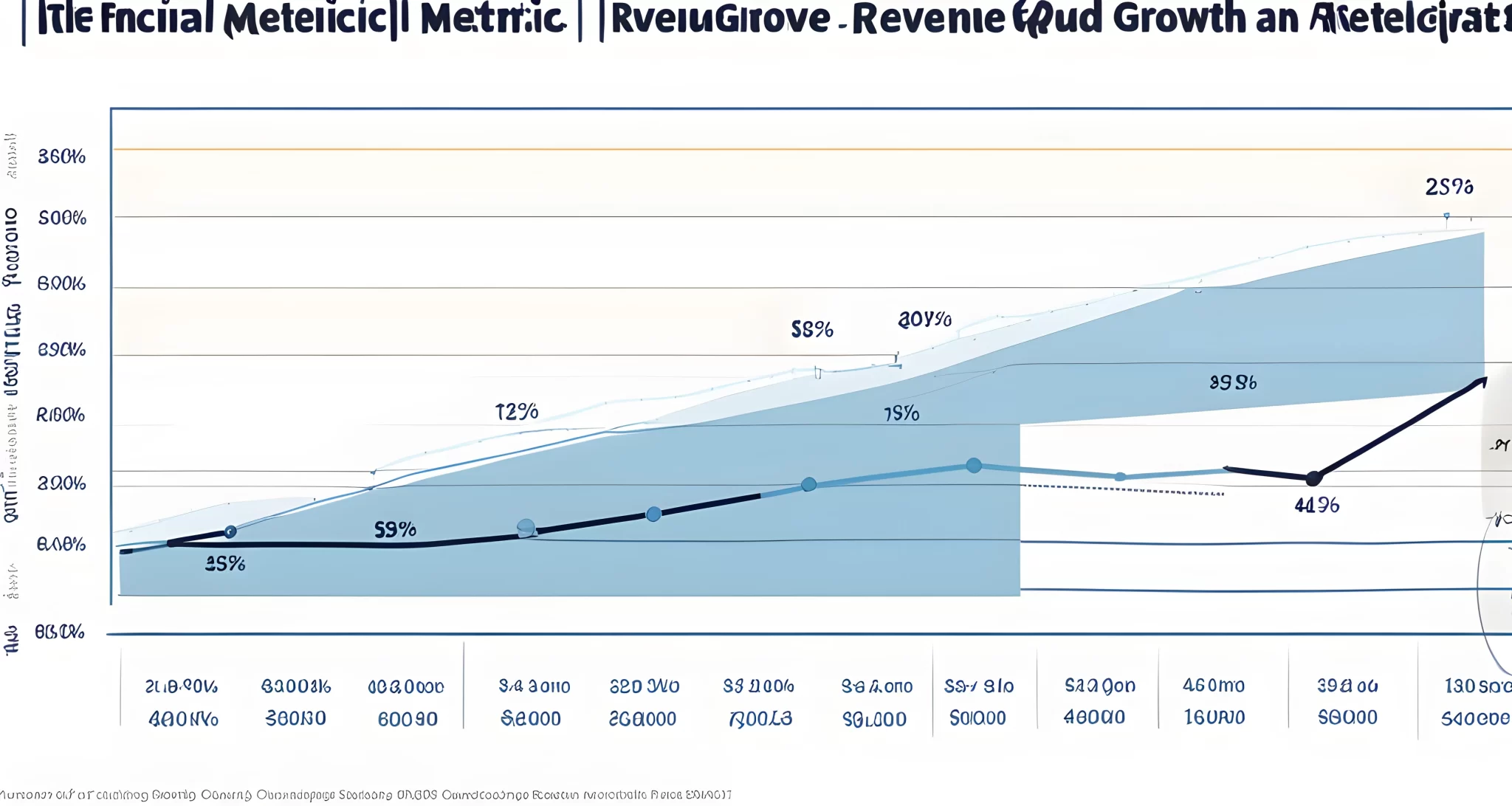Building a Solid Business Case
Building a solid business case is crucial for startups seeking venture capital funding. It involves creating a detailed business plan that outlines the key aspects of your business. This includes your product or service, target market, marketing strategy, financial projections, and management team. According to Venture capital for startups, a well-structured business plan is essential for attracting potential investors.
Key Components of a Business Plan
- Product or Service: Clearly define what your product or service is and how it addresses a market need or pain point.
- Target Market: Identify your target audience and explain how you plan to reach and engage with them.
- Marketing Strategy: Outline your marketing and sales strategies to acquire customers and generate revenue.
- Financial Projections: Provide detailed financial forecasts, including revenue projections, expenses, and cash flow analysis.
- Management Team: Highlight the qualifications and experience of your management team.
Path to Profitability
Your business plan should clearly demonstrate a path to profitability and a strong business model. This involves conducting thorough research and analysis of the market, competition, and industry trends. Investors want to see that you have a viable strategy for generating revenue and achieving sustainable growth.
Compelling Case for Investors
By thoroughly researching and analyzing every aspect of your business, you can create a compelling case for potential investors. This includes showcasing the market opportunity, unique value proposition, competitive advantage, and scalability of your business. A well-crafted business plan serves as a roadmap for success and instills confidence in potential investors.
In conclusion, building a solid business case is the foundation for maximizing your startup’s potential with venture capital. A comprehensive business plan not only attracts investors but also provides a clear direction for the growth and success of your startup.

Finding the Right Venture Capitalist
Once you have a strong business plan, the next step is to find the right venture capitalist for your startup. Research potential investors who align with your vision and business goals. Analyze their previous investment patterns to gain insights into their strategy and what they might be looking for in a new investment.
Finding the right investor who understands and supports your business can significantly impact your startup’s success and growth potential. To learn more about the importance of finding the right investor, check out Solving Entrepreneurial Funding Dilemmas.
It’s essential to do your due diligence when seeking venture capital funding. Look for investors who have experience in your industry and have a track record of successful investments. Understanding their investment patterns will give you an idea of whether they are a good fit for your startup.
When approaching potential venture capitalists, be prepared to articulate how their investment will benefit both parties. Show them that you have a solid business plan and a clear vision for the future of your company. Understanding the specific needs and interests of potential investors will help you tailor your pitch to resonate with them.
Remember that finding the right venture capitalist is not just about securing funding; it’s about finding a strategic partner who can provide valuable insights and connections to help your startup grow. Look for investors who can bring more than just money to the table.
In conclusion, finding the right venture capitalist is crucial for the success of your startup. Take the time to research and identify potential investors who align with your vision and goals. By understanding their investment patterns and demonstrating how their support can benefit both parties, you can increase your chances of securing the right funding for your startup.

Pitching to Venture Capitalists
When pitching to venture capitalists, clarity and conciseness are vital. Your pitch should clearly articulate your business model, market potential, and how the funding will be utilized. It’s crucial to showcase your strong and skilled team, as well as a clear understanding of investor expectations.
Crafting a compelling and well-prepared pitch can significantly increase your chances of securing venture capital funding for your startup.
Here are some key points to consider when pitching to venture capitalists:
-
Clearly define your business model: Clearly outline how your business operates, its revenue streams, and its competitive advantage in the market. Investors want to see a clear understanding of how your business will make money and stand out from the competition.
-
Highlight market potential: Showcase the market size, growth potential, and any trends that support the need for your product or service. This demonstrates to investors that there is a viable opportunity for growth and success.
-
Explain fund utilization: Clearly outline how you plan to utilize the funding. Whether it’s for product development, marketing efforts, or expanding operations, investors want to see a strategic plan for how their investment will be used to drive growth.
-
Showcase your team: Highlight the skills and expertise of your team members. Investors want to see that you have a strong and capable team in place to execute on your business plan.
-
Understand investor expectations: Research and understand what venture capitalists look for in potential investments. Be prepared to address any concerns they may have and demonstrate a clear understanding of their expectations.
In conclusion, a well-prepared pitch that clearly articulates your business model, market potential, fund utilization, and strong team can significantly increase your chances of securing venture capital funding for your startup.
For more information on maximizing risk and return in venture capital investments, check out Optimizing Investment Returns.

Utilizing Venture Capital Funding for Growth
After securing venture capital funding, the focus should shift to utilizing the expertise of venture capital partners for strategic decision-making and market insights. This funding should be invested in building a strong team, robust marketing strategies, and technology innovation. Leveraging the resources and guidance provided by venture capitalists can propel your startup towards substantial growth and market impact.
-
Leveraging Expertise: Venture capitalists often have extensive experience in the industry and can provide valuable insights and guidance. They can offer strategic advice, introduce you to potential partners or clients, and help you navigate potential challenges. Utilize their expertise to make informed decisions and steer your startup in the right direction.
-
Building a Strong Team: The success of any startup heavily relies on the strength of its team. With venture capital funding, you can hire top talent, invest in training programs, and build a cohesive team that is aligned with your vision. A strong team is essential for executing growth strategies effectively.
-
Robust Marketing Strategies: Effective marketing is crucial for gaining traction in the market. Venture capital funding can be used to invest in targeted marketing campaigns, branding efforts, and customer acquisition strategies. By allocating resources to marketing, you can increase brand awareness and drive customer engagement.
-
Technology Innovation: In today’s digital age, technology plays a vital role in the success of startups. With venture capital funding, you can invest in research and development to innovate your product or service offerings. This can give you a competitive edge in the market and open up new opportunities for growth.
Utilizing venture capital funding for growth requires careful planning and strategic execution. By actively involving your venture capital partners in decision-making processes and seeking their guidance when needed, you can maximize the impact of the funding on your startup’s growth trajectory.
For more information on venture capital investment essentials, check out Venture Capital Investment Essentials for valuable insights into navigating the world of venture capital.

Planning for Future Funding Rounds and Performance Measurement
As your startup begins to grow and expand with the help of venture capital funding, it’s essential to plan for future funding rounds and regularly measure performance to ensure ongoing success. With the right team and business plan in place, your startup can achieve substantial growth and market impact.
Setting the Stage for Future Funding Rounds
As your startup begins to see success and growth, it’s important to start thinking about future funding rounds. This could involve seeking additional venture capital funding or exploring other options such as private equity or even going public through an initial public offering (IPO). By continuously evaluating your financial needs and the potential for future growth, you can develop a strategy for securing the necessary funding to take your startup to the next level.
Performance Measurement and Strategy Adjustment
Regularly measuring performance is crucial for adjusting strategies accordingly. By monitoring key performance indicators (KPIs) such as customer acquisition cost, lifetime value of a customer, and revenue growth, you can gauge the effectiveness of your current strategies. This allows you to make informed decisions about where to allocate resources and how to pivot if certain aspects of your business are not performing as expected.
Ensuring Ongoing Success
With the help of venture capital funding, your startup has the potential for substantial growth and market impact. However, this also comes with increased expectations for performance and return on investment. By continuously evaluating and adapting your strategies, you can ensure ongoing success and sustainable growth for your startup in the competitive market.
To learn more about the impact of venture capital on startup growth, check out our article on Startup success with venture capital. This will provide valuable insights into how venture capital can fuel the growth of your startup and help you achieve your long-term goals.
FAQ
What should be included in a startup’s business plan?
A startup’s business plan should include a detailed description of the product or service, the target market, the marketing strategy, financial projections, and the management team. it should demonstrate a clear path to profitability and a solid business model.
How can a startup find the right venture capitalist?
To find the right venture capitalist, startups should research potential investors who align with their vision and business goals. they should also analyze previous investment patterns to gain insights into the investor’s strategy and what they might be looking for in a new investment.
What is important to include in a pitch to venture capitalists?
When pitching to venture capitalists, startups should focus on clarity and conciseness. the pitch should articulate the business model, market potential, and funding utilization. it is crucial to showcase a strong, skilled team and a clear understanding of investor expectations.
What should a startup focus on after securing venture capital funding?
After securing venture capital funding, startups should focus on growth and utilize the expertise of venture capital partners for strategic decision-making and market insights. they should invest in building a strong team, robust marketing strategies, and technology innovation, while also planning for future funding rounds and regularly measuring performance to adjust strategies accordingly.
